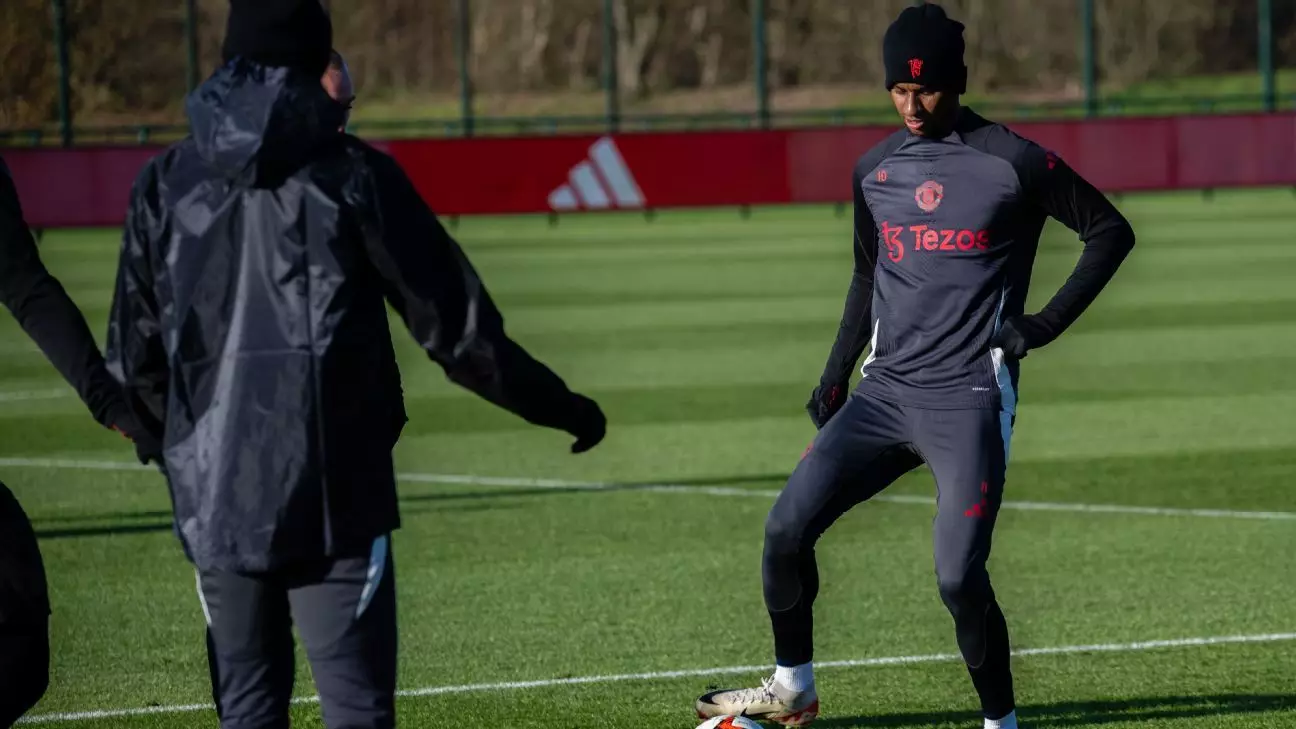Marcus Rashford’s recent absence from Manchester United’s squad has raised eyebrows and fueled speculation among fans and analysts alike. The talented forward has been sidelined for three consecutive matches, including high-stakes encounters against rival teams such as Manchester City and Tottenham. This absence has led to contrasting opinions regarding the reasons behind it. While some observers have chalked it up to Rashford’s controversial interview indicating a desire for a move away from the club, Manchester United’s head coach, Ruben Amorim, has clarified that his omission stems more from a lack of performance in training than any external statements.
In a series of press conferences dominated by the topic of Rashford, Amorim has consistently emphasized his commitment to team performance and the standards he expects from players. He has stated unequivocally that the decision to restrict Rashford’s playing time is solely his, as he aims to instill discipline and accountability within the squad. “When I feel that it is the right moment,” he remarked, “I will change something.” This clarity in leadership could potentially act as a catalyst for Rashford to reflect on his current form and return stronger when he eventually re-enters the pitch.
The team’s recent string of poor performances, particularly back-to-back losses to Tottenham and Bournemouth, underscores a wider issue beyond just Rashford. Amorim’s remarks about the need for “big responsibility” echo a growing sentiment within the club that every player must rise to the occasion during challenging times. He believes that those who have been with the club for longer should lead by example, particularly in moments of adversity. This collective responsibility could very well serve as a turning point for Manchester United as a whole.
Although Rashford’s situation has drawn considerable media attention, Amorim insists it hasn’t created distractions within the team environment. He suggests that players and staff are aware and respectful of the circumstances. This perspective highlights the importance of team culture, where understanding and mutual support foster a cohesive unit, even in the face of individual struggles. Amorim’s focus remains on ensuring that his message to Rashford—and the rest of the team—is clear and aimed at fostering improvement, both on an individual and collective level.
With an upcoming match against Wolves on Boxing Day, the pressing question is: What must Rashford do to earn his place back in the squad? Amorim’s reply is straightforward—Rashford needs to be the best version of himself. This includes not just raw talent but also embodying the level of commitment and engagement expected from a player of his caliber at Manchester United. As the pressures mount, both the club and Rashford find themselves at a crossroads that could shape their immediate future. Ultimately, a willingness to change, adapt, and embrace responsibilities could usher in a resurgence for Rashford and rejuvenate his standing within the team.

